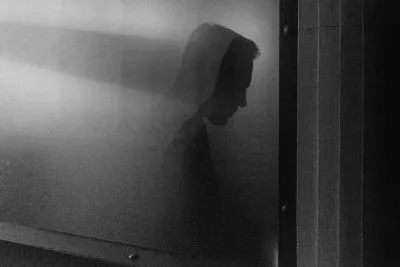
- Originally Published on June 9, 2022
Important Online Harassment Laws in New York You Should Know
For New Yorkers who are the subject of online harassment and threatening digital behavior, it is crucial to understand your legal options and recourse. Depending on the type of online harassment you are experiencing, New York criminalizes online harassment under general harassment, computer tampering, and revenge porn laws.
To be charged with harassment in New York, a perpetrator must generally engage in a course of conduct that alarms or seriously annoys the victim and serves no legitimate purpose.
To be charged with the unauthorized use of a computer, also commonly referred to as computer tampering, a perpetrator must unlawfully (and without authorization) access a computer or computer network and, in the case of tampering, alter or destroy sensitive data.
To be charged with revenge porn, a perpetrator must disseminate an intimate image of another without their consent. The victim must be identifiable in the image, the image must be distributed with the intent to cause harm, and the victim must have had a reasonable expectation of privacy.
At Minc Law, we know what it takes to not only prevent online harassment and internet abuse but also put a swift end to the attacks. We have extensive experience navigating the complexities and nuances of internet harassment, stalking, and blackmail laws and holding perpetrators accountable for their unlawful actions. We also provide comprehensive tools and strategies to empower clients to monitor the internet for further digital risks and prevent subsequent online attacks.
Below, we cover the basics of the criminal laws prohibiting online harassment in New York and their penalties. We also provide tips on what to do if you are a victim of online harassment in New York.
Don't suffer in silence.
With a team of experienced attorneys, we will fight for the closure you deserve. Take back control today.
Contact Minc LawLaws & Regulations in Place in New York to Stop Online Harassment
There are both criminal and civil laws in place to combat online harassment and internet abuse in New York. Criminal penalties may result in fines and jail time for the perpetrator, while civil penalties may include injunctive relief such as stopping the offender from engaging in subsequent unlawful conduct (and monetary damages).
What Legal Protections Does the New York State Government Provide Victims of Online Harassment?
As emphasized above, New York provides criminal penalties for several types of harassment such as criminal harassment, unauthorized use of a computer or computer tampering, and unlawful dissemination or publication of an intimate image. Violating these laws can result in jail time of up to one year and penalties of up to $1,000.
The criminal process can take time and is prosecuted by the State through a district attorney rather than the victim. To more immediately compel the ceasing of harassing behavior, targets of online harassment may pursue a restraining order. Restraining orders prohibit the perpetrators from contacting a victim by any means.
Restraining orders are most commonly issued when the perpetrator behind the harassment is a family member or intimate partner and can last for up to five years in some circumstances.
In addition, a victim of online harassment may pursue civil recourse against the perpetrator. Civil suits are lawsuits initiated by the victim against the perpetrator and do not typically result in jail time for the perpetrator but monetary awards and injunctive relief. One possible basis for a civil lawsuit is the tort of intentional infliction of emotional distress. We discuss this in greater detail below.
What Criminal Statutes Apply to Online Harassment in New York?
There are several key statutes criminalizing online harassment in New York, such as three separate criminal harassment statutes, a computer tampering statute, and a revenge porn statute.
Three Types of Harassment in New York
New York has three separate harassment statutes:
- Harassment in the first degree,
- Harassment in the second degree, and
- Aggravated harassment in the second degree.
The statute which applies will depend on the severity of the harassment.
Harassment in the First Degree
For example, a person may be guilty of harassment in the first degree if they intentionally and repeatedly harass another person. Harassment may consist of following a person in a public place or engaging in a course of conduct that places another person in reasonable fear of physical injury. In New York, harassment in the first degree is a class B misdemeanor.
Harassment in the Second Degree
A person may be guilty of harassment in the second degree if they engage in various types of conduct with the intent to harass, annoy, or alarm another person. Such prohibited conduct may include:
- Striking, shoving, kicking, or otherwise subjecting someone to physical contact, or threatening to do so,
- Following a person about in a public place, or
- Engaging in a course of conduct that alarm or seriously annoy another person and which serves no legitimate purpose.
In New York, harassment in the second degree is classified as a violation, which is considered a lesser offense than a misdemeanor.
Aggravated Harassment in the Second Degree
The most common type of harassment used to prosecute cyber harassment in New York is aggravated harassment in the second degree. Countless types of behaviors and conduct can amount to aggravated harassment in the second degree.
Aggravated harassment in the second degree will take the form of cyber harassment if, with the intent to harass another person, the offender communicates a threat electronically or by mail. The threat must be one of physical harm or harm to the property of the victim or their family and may be made directly or through another person.
Aggravated harassment in the second degree may also be found if the perpetrator:
- Makes a telephone call with no purpose of legitimate communication and with the intent to harass or threaten another person, or
- With the intent to harass, annoy, threaten or alarm another person, to subject another person to physical contact, or threaten to do so because of their perception as to the victim’s race, color, national origin, ancestry, gender, gender identity, religion, age, disability, or sexual orientation, or
- With the intent to harass, annoy, threaten, or alarm another person, to subject another person to physical contact which causes physical injury.
In New York, aggravated harassment in the second degree is a class A misdemeanor.
Unauthorized Use of a Computer (Computer Tampering)
The following crimes may be found in various types of unlawful online conduct, such as cyber harassment, cyberbullying, or cyberstalking.
New York prohibits the unauthorized use of a computer. A person is guilty of this crime if they knowingly use or access a computer or computer network without authorization. In New York, this is a class A misdemeanor.
Computer tampering is also prohibited under New York law. Computer tampering in the fourth degree occurs when a perpetrator uses or accesses a computer or computer network without authorization and intentionally alters or destroys the computer data of another person. This is also a class A misdemeanor.
Revenge Porn
New York also prohibits the unlawful publication or distribution of intimate images without consent. This is commonly referred to as revenge porn or non consensual pornography.
A person may be guilty of revenge porn if the following conditions are met:
- The offender intentionally disseminates or publishes a picture or video of another person, and
- The image depicts an intimate part of that person or the person is engaged in sexual conduct, and
- The person depicted is identifiable, and
- The picture or video is published without the consent of the person depicted, and
- The image was taken under circumstances where the person depicted had a reasonable expectation that the image would remain private, and
- The offender does so with the intent to cause harm to the emotional, financial, or physical welfare of another person.
In New York, the distribution and publication of intimate images without consent is a class A misdemeanor.
What Legally Qualifies as Online Harassment in New York?
Conduct that falls within New York Penal Law 240.30 qualifies as online harassment. Specifically, 240.30 prohibits the harassment of another person through a phone, computer, or other electronic means. The harassment must be perpetrated with the intent to harass.
Online harassment must also involve a threat to cause physical harm to the person or property of the victim, or a family member. Further, this threat must cause the person to reasonably fear for their or their family’s physical safety.
How is Online Harassment Punished in New York?
In New York, punishments for online harassment can range anywhere from a $500 fine to one year in jail, depending on the type (and severity) of crime that has been committed.
What is the Difference Between Civil & Criminal Online Harassment in New York?
In civil matters, perpetrators do not typically face jail time. The offense is punished by either an order requiring the perpetrator to cease their unlawful conduct (the harassment), having them pay monetary damages to the victim or both. In criminal cases, the offense is typically punished by jail time, a fine, or both.
Civil Penalty—Intentional Infliction of Emotional Distress
There are currently no civil laws codified specifically to address harassment in New York. There are, however, civil penalties for intentional infliction of emotional distress. To succeed in a claim for intentional infliction of emotional distress, a plaintiff must prove the following four elements:
- The perpetrator engaged in extreme and outrageous conduct;
- With intent to cause, or disregard of the substantial probability of causing, severe emotional distress;
- There was a causal connection between conduct and injury; and
- It resulted in severe emotional distress for the victim.
Both compensatory and punitive damages may be available for plaintiffs in a successful intentional infliction of emotional distress claim.
Criminal Online Harassment
There is however a specific criminal law in place to address online harassment in New York. To succeed in a claim for criminal online harassment, the state must prove that a perpetrator:
- Had the intent to harass someone;
- Sent a threat to hurt someone or their property;
- Knew or should have known that the communication would cause the recipient to fear harm to them or their property.
If these elements are met, the perpetrator may be held criminally liable and face jail time and/or a fine (addressed below).
What is the Penalty for Online Harassment in New York?
General Harassment in New York
In New York, the penalty for online harassment will depend on which statute has been violated.
As mentioned above, harassment in the first degree is a class B misdemeanor and punishable by a maximum of three months imprisonment, one-year probation, and/or a fine of up to $500.
Harassment in the second degree is classified as a violation, a lesser offense than a misdemeanor, and punishable by a maximum of 15 days imprisonment.
Aggravated harassment in the second degree is a class A misdemeanor and punishable by a maximum of one year in jail or three years probation, and/or a fine of up to $1,000.
Unauthorized Computer Access in New York
Unauthorized use of a computer and computer tampering in the fourth degree are class A misdemeanors. Both are punishable by a maximum of one year in jail or three years probation, and/or a fine of up to $1,000.
Revenge Porn in New York
The unlawful dissemination or publication of an intimate image, or “revenge porn,” is a class A misdemeanor, and punishable by one year in jail or three years probation, and/or a fine of up to $1,000.
Does New York Have Any Laws in Place to Combat Doxxing or Swatting?
Doxxing, or Doxing, refers to the publication or dissemination of personally identifying information about a victim, typically with malicious or reckless intent. Such personally identifying information commonly includes an individual’s address, phone number, email address, social security number, or other sensitive financial information.
Oftentimes, the information is released or published with the ultimate goal of threatening or harming the victim.
As of May 2022, there are no specific New York statutes in place to protect against doxing. In January 2022, New York’s legislature introduced a bill prohibiting doxing, however, the bill still needs to be voted on and the acting Governor must sign it before it becomes law.
If passed, the bill would classify doxing as a class A misdemeanor, punishable by up to one year in prison or three years probation, and/or up to a $1,000 fine.
How You Can Deal with Online Harassment in New York
Online harassment can be an incredibly stressful and worrying experience and it can be difficult to know exactly how to respond. Below, we outline several effective strategies to respond to and deal with online harassment.
How Should You Respond to Online Harassment?
Ask the Perpetrator to Stop
Asking the perpetrator to stop the harassment is an important first step. For one thing, sometimes it works. The perpetrator may stop harassing you. If the perpetrator continues to contact you after you have requested that they cease harassing you, this may serve as evidence of the perpetrator’s intent (should you initiate legal proceedings against them). Proving intent is helpful in both a criminal and civil case.
Make sure to document both the date and time that you requested they cease harassing you. We also recommend taking a screenshot of the conversation, the perpetrator’s online profile, and any other identifying information you can find about them.
After requesting that the perpetrator cease their unlawful behavior, refrain from engaging further with them. Even if they continue to harass you, do not respond.
Preserve all Evidence
Next, preserve and document all instances and evidence of the harassment.
While it can be tempting to delete the abusive content, do not. Document as much evidence of the abuse as you can as this can be critical for advancing your case in either a criminal or a civil suit.
Below are key types of information you want to preserve:
- Name of the abuser,
- Phone number of the abuser,
- Email address of the abuser,
- Details of the abuser’s social media (ex. Account profiles, URLs, pictures)
- Screenshots of all instances and communications of harassment,
- Messages between you and the abuser.
Consider Taking Legal Action
If the online harassment continues even after asking the perpetrator to stop, you may want to speak to an experienced internet attorney and pursue legal action. This may also include filing a police report with your local law enforcement.
What Legal Measures Can You Take in Response to Online Harassment?
File a Report With Local Authorities
To initiate the filing of a criminal charge, you will need to lodge a report to your local authorities. Make sure to include all documented evidence concerning the harassment.
Even if nothing is done immediately, such a report may serve as important documentation down the line should the harassment continue or the perpetrator harasses other targets.
Speak to an Experienced Online Harassment Lawyer
It can be overwhelming to go through the criminal or civil process alone. Speaking with an experienced internet attorney can help ease the burden of communicating with the harasser, compiling and presenting evidence, and navigating the complexities of online harassment laws.
Additionally, an experienced internet attorney can also act as a liaison between you and the police or prosecutor in a criminal case.
If you want to file a civil suit, an attorney can discuss the potential benefits and drawbacks of doing so and advocate on your behalf throughout the case.
Where Should You Report Online Harassment in New York?
There are several key organizations and agencies that you can contact to report unlawful online harassment and abuse depending on your specific situation.
The Internet Crime Complaint Center (IC3)
The Internet Crime Complaint Center, or IC3, is a web-based portal for reporting criminal internet activity to the FBI. After a complaint is filed, the information is reviewed by an analyst and then forwarded to the appropriate law enforcement agency.
You can find a comprehensive walkthrough of how to file a report with IC3 here. To the extent you can, include the following information:
- Your name, address, phone number, and email;
- Financial transaction information if applicable;
- Perpetrator’s name, address phone number, email, website, and IP address (if available);
- Details of how you were victimized and harassed;
- Email header(s);
- Any other relevant information.
Your Local Police
Filing a report with your local police department is an effective place to start when you are a victim of online harassment. You can find a list of local police department contact information in New York here.
Your Internet Service Provider
If your child is the target of cyberbullying, the New York Attorney General recommends contacting your internet service provider (ISP). If the harassment occurs over mobile phone, contact your phone service provider.
Services to Help Victims of Online Harassment in New York
Being the target of online harassment, cyberstalking, or other internet abuse can take a serious toll on your mental health (and even physical health). Common effects of online harassment may include depression, anxiety, suicidal ideation, and panic attacks.
Below is a list of several key resources to use and/or reach out to if you are the target of internet harassment in New York (or the United States).
Popular Helplines
- National Suicide Prevention Helpline: 800-273-8255. If you or someone you know are contemplating suicide, please call 911 or the National Suicide Prevention hotline immediately. Both are staffed 24/7.
- Eating Disorders Association: 800-931-2237. Staffed Monday through Thursday from 11 am to 9 pm eastern and Friday from 11 am to 5 pm eastern.
- The Trevor Project (LGBTQ+ Helpline): 866-488-7386. Staffed 24/7. In addition to calling, you can also chat online or text.
Your Local Police Department
If you live in New York City, you can find phone numbers for the New York Police Department on their contact page. For general inquiries, call 646-610-5000.
If you live outside of New York City, you can find the remaining county police phone numbers by searching this platform.
Why is it Important to Provide Services For Victims of Online Harassment?
Can Help Stop the Harassment Against the Specific Victim
By engaging in the criminal or civil system, you help to prevent the abuser from harassing or stalking you again. Criminal penalties and restraining orders prohibit the abuser from continuing to harass or stalk you. A civil suit may also compel the perpetrator to legally cease harassing or stalking you and serve as documentation if attacks continue.
Can Help Victims Heal & Bring Peace of Mind
Harassment can be traumatizing. Mental health services, like those listed above, can help you heal. For some victims of abuse, pursuing legal charges against the abuser can also be empowering and lead to healing.
Taking Action May Deter Others From Harassing People in the Future
Filing a lawsuit may not only deter the current abuse or perpetrator – it can also deter future abuse and unlawful behavior. As more and more cases lead to punishment of online harassers, the consequences of the harassment become widely recognized and known. This may lead to future abusers refraining from harassing soon-to-be victims.
Work With Experienced Internet Attorneys to Stop Online Harassment in New York
Being harassed, stalked, or attacked online can be a harrowing experience and you may not know where to start to protect yourself and put an end to the abuse.
At Minc Law, we can help you understand your rights and legal options to put an end to the attacks. We dedicate our practice to protecting both individuals and businesses from internet-related privacy issues and know the ins and outs of navigating the complexities of internet harassment and stalking laws.
★★★★★
“I should have called you sooner. Very effective, quick response. Susan did a great job.”
David A.
Jun 5, 2022
If you need assistance or guidance on how to deal with internet harassment in New York or the United States, we can help. Reach out to schedule your initial, no-obligation consultation with an intake specialist by calling us at (216) 373-7706, speaking with a Chat representative, or filling out our online contact form.
Get Your Free Case Review
Fill out the form below, and our team will review your information to discuss the best options for your situation.
This page has been peer-reviewed, fact-checked, and edited by qualified attorneys to ensure substantive accuracy and coverage.





